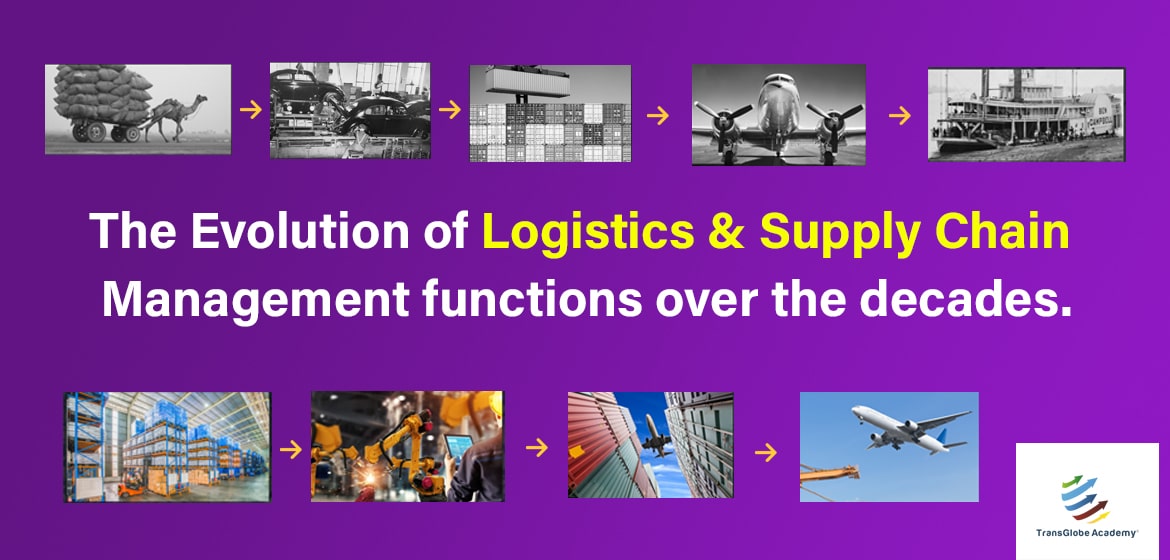Businesses and education sectors all over the world are beginning to study the present circumstances as the world progresses toward stability in order to put the lessons from the pandemic into practice.
The global supply chain has experienced a disruption like nothing before over the past two years. New dynamics have significantly altered our lives and have reshaped how we work, how we buy, how goods are produced, how we live, and how our economy operates thus creating a rising opportunity doors to more people in our country. Which in turn makes a high demand for supply chain management courses in Kerala.
The logistics and supply chain business and education sector has undergone a significant change in recent decades as a result of technical improvements, the expansion of e-commerce, globalization, sustainability concerns, and greater rivalry.
A variety of technologies, including GPS, RFID, AI, the Internet of Things, and automation have made it possible to monitor and improve operations in real time, and the expansion of e-commerce has led to new demands for last-mile delivery methods that are quicker and more adaptable.
Cross-border shipping logistics have become more complex as a result of globalization, and businesses are being compelled to use supply chain practices that are both socially and environmentally responsible.
It’s not just a matter of adjusting for the logistics sector. In order to stay ahead of the curve, innovation and pivoting are equally important. Being constantly susceptible to disruption, the supply chain must adapt to a drastically transformed environment as e-commerce assumes greater prominence in this new normal.
The Indian logistics and supply chain sector has changed from a support sector to a high-impact business during the past 20 years.
By 2025, it is predicted that the Indian logistics market would have grown to a size of roughly $380 billion. This automatically rises to be the major factor for increased demand for education sectors around India. This is one of the reasons why also the logistics courses in Kerala are having high demand.
The use of robotic process automation (RPA), artificial intelligence (AI), machine learning (ML), and the Internet of Things (IoT) for inventory management, tracking, and order placements to routing schedules have all significantly changed how we conduct business, which has resulted in a significant shift in the logistics and supply chain landscape over the past ten years.
Additionally, contactless deliveries and cashless payments through e-commerce and online grocery shopping are revolutionizing customer-facing businesses. Retailers are under more pressure than ever to give their customers a smooth, personalized experience and to add value outside of the realm of conventional retail models. Retailers can now transport lightweight items thanks to the development of drones, which makes it simpler for them to cut back on capital expenses and fulfillment costs related to opening physical storefronts.
The rapid growth of 3PL and 4PL providers in the manufacturing sector is the other significant development. The Indian 3PL industry is projected to increase at a rate of around 11.5% between 2020 and 2025.
While the manufacturing industry started the trend of outsourcing supply chain management, other industries also benefit from it. It helps that the service providers have developed as important partners, providing knowledgeable, comprehensive solutions for areas like paperwork, surveillance, warehousing, and legal compliance.
In addition, a lot of the industry’s logistics firms are switching to more intelligent, technologically advanced, and economically viable eco-friendly and sustainable operations. Reduced emission levels, lower gas prices, fewer expenses for upkeep, and increased productivity are some benefits of this shift. Businesses are implementing green practices in their operations and warehouses, including the usage of electric vehicles and the construction of smarter warehouses with technologies that are energy-efficient.
The demand for multi-modal logistics is also driven by industries like transportation, e-commerce retail, farming and agricultural enterprises, and healthcare. Given that metropolitan areas are home to more than 75% of the world’s population, there is a larger demand for local delivery choices like same-day delivery to cut down on transportation expenses and increase productivity.
Finally, during the past 20 years, the manufacturing of containers has grown significantly in India. With output levels tripling every 6 to 8 years, India’s container business is one of the strongest in the world. India has a sizable manufacturing industry and a thriving export industry that has been expanding continuously for 20 years. India is one of the nations that is producing containers at the fastest rate in the world, which is also vital to mention. With container manufacturers moving up to close the supply-demand gap in the global supply chain network, this is an exciting time for the Indian logistics sector.
The logistics and transportation sectors are going through a lot of transformation right now. With new technologies, customer expectations, and company models, this transformation provides opportunity as well as risk. Since we understand the process of managing the disruption that change brings and how to maintain our customers’ operational effectiveness, profitability, and competitive advantage, we have been at the leading edge of these shifts for decades.
Overall, the supply chain and logistics sector has undergone major development over the past two decades as a result of a mix of technical advancements, shifting consumer needs, and increased competition. Supply chain and logistics operations have improved as a result of these improvements, becoming more effective, flexible, and long-lasting.
In conclusion, a variety of reasons, like technological development, shifting consumer expectations, and the desire to remain competitive in an increasingly globalized market, have influenced the growth of supply chain management. Businesses will need to adapt to new technology and processes as supply chain management continues to change if they want to stay competitive and satisfy their consumers’ shifting expectations. The possibility of business will increasingly rise in the coming years and so will the job opportunities. Get connected with the best logistics institute in Kerala, TransGlobe School of Logistics and Aviation Management to know more about logistics and supply chain management courses and opportunities.

